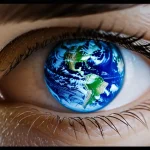How Climate Change is Impacting Current World Events Today
Climate change is no longer a distant threat but a pressing force reshaping global affairs. In 2024 alone, extreme weather events surged by 15%, according to the UN’s latest report. This rising tide impacts everything from politics to economies—so how are we adapting to a world where the climate’s sway is undeniable?
In parallel : How are technological advancements shaping the news landscape?
Key Global Events Shaped by Climate Change
Climate change is no longer just an environmental issue—it’s a force shaping the course of global events. Take the devastating wildfires in Australia and California; both witnessed unprecedented intensity in recent years, destroying homes and reshaping communities. These are not isolated incidents but clear examples of how rising temperatures fuel natural disasters.
Beyond nature’s fury, shifting climates trigger human crises. In the Sahel region, prolonged droughts have intensified food scarcity, sparking conflicts and mass migrations as people seek safer living conditions. Similarly, rising sea levels threaten island nations, forcing entire populations to rethink their futures. These stories show how climate change disrupts social and political stability worldwide.
Also read : How are cultural shifts influencing modern society?
Understanding this intricate web helps us grasp that tackling climate change means addressing more than just the environment. It involves peacebuilding, migration policies, and disaster preparedness—areas where cooperation is key. By recognizing these connections, we step closer to solutions that respect both people and the planet.
The Role of Climate Change in International Politics
Climate change is no longer just an environmental issue—it has become a powerful force shaping international politics. Nations increasingly recognize that rising temperatures and extreme weather events can destabilize regions, strain resources, and influence diplomatic relations. For example, disputes over water rights in areas like the Nile Basin have intensified as droughts become more frequent, highlighting how climate stress can ignite geopolitical tensions.
On the global stage, climate change drives policy agendas and international agreements. The Paris Agreement stands as a testament to the collective effort to tackle this challenge, yet negotiations reveal the delicate balance of competing national interests. Countries must weigh economic development against environmental responsibility, a dynamic that often complicates cooperation but also fosters new alliances.
Ultimately, understanding climate change’s role in diplomacy and conflict is key to navigating the modern world—a world where weather patterns influence everything from local livelihoods to worldwide security strategies.
Understanding These Climate-Driven Challenges: A Closer Look
Climate change isn’t just about melting ice caps or rising sea levels—it’s reshaping our world in complex and often surprising ways. These shifts ripple through societies, economies, and environments, creating challenges that demand our attention.
Here are some of the main impacts driven by our changing climate:
- Natural disasters intensify: From devastating wildfires in Australia to hurricanes slamming the Caribbean, extreme weather events are becoming more frequent and severe.
- Migration pressures rise: As certain regions become less habitable, communities face displacement, leading to increased migration and its attendant social and political strains.
- Economic instability grows: Climate disruptions affect agriculture, infrastructure, and supply chains, threatening livelihoods and global markets alike.
- Health crises emerge: Changing climates foster the spread of diseases, worsen air quality, and strain healthcare systems, revealing vulnerabilities we can no longer ignore.
Understanding these interconnected challenges helps us grasp the urgency—and the opportunity—to act wisely and collectively.
How Worldwide Communities Are Responding to Climate Impacts
Across the globe, communities are stepping up with creative solutions to the pressing challenges of climate change. From coastal villages in Bangladesh building floating homes to urban centers like Copenhagen investing heavily in green infrastructure, adaptation and resilience are becoming second nature. These initiatives showcase the power of local knowledge combined with innovative thinking.
On an international scale, collaborative efforts like reforestation programs and clean energy partnerships are gaining momentum, driven by a shared urgency to curb carbon emissions and protect vulnerable ecosystems. For example, in Kenya, solar micro-grids are transforming rural access to energy while reducing reliance on fossil fuels. Meanwhile, tech startups are pioneering smart agriculture tools that help farmers worldwide optimize water use and boost crop resilience.
These diverse approaches underline a hopeful reality: while the climate challenge is vast, the human capacity for ingenuity and cooperation shines brightly. By blending tradition with technology, communities everywhere are crafting meaningful paths toward a more sustainable future.
What Does the Future Hold for Global Affairs and Climate Change?
Looking ahead, the interplay between global affairs and climate change presents a complex web of possibilities. Experts foresee scenarios ranging from hopeful advancements in green technology to troubling increases in geopolitical tensions fueled by resource scarcity and environmental displacement.
While some predict a future shaped by international cooperation and innovative solutions, others caution that without decisive action, the consequences could deepen existing inequalities and conflicts. In this evolving landscape, generalist media play a vital role. By providing accessible, clear, and balanced coverage, they help you, the reader, make sense of intricate global dynamics and inspire collective engagement.
In a world where information is abundant but understanding is scarce, staying informed through thoughtful reporting is more important than ever. Together, we can navigate these challenges with curiosity, openness, and a shared commitment to a sustainable future.
Your Questions About Climate Change and World Events Answered
How is climate change influencing current global events?
Climate change intensifies natural disasters, disrupts economies, and fuels migration. These effects ripple through global events, shaping conflicts and international cooperation in unexpected ways.
What are the major world events affected by climate change today?
Extreme weather crises, food shortages, and refugee movements linked to climate change are reshaping international summits, disaster relief efforts, and security discussions worldwide.
In what ways does climate change impact international politics?
It shifts geopolitical priorities, with nations negotiating over resources, adapting policies, and facing pressure to act on environmental commitments.
Can we see direct effects of climate change in recent world crises?
Yes, from intensified wildfires in Australia to floods in Europe, climate change worsens these crises, bringing urgency to global responses.
What solutions are being proposed to address climate change in world affairs?
Renewable energy investments, carbon agreements, and sustainable development goals are central to diplomatic strategies fighting climate change.
How does [Client Name] support climate awareness in global discussions?
[Client Name] drives informed dialogue by providing accessible news and expert insights, helping communities understand climate’s role in world events.





